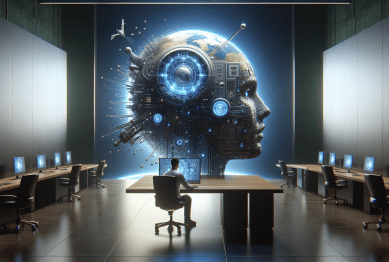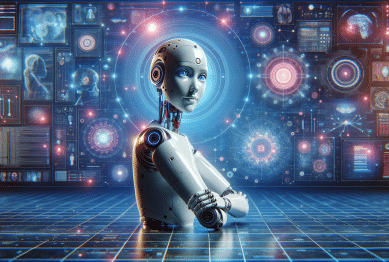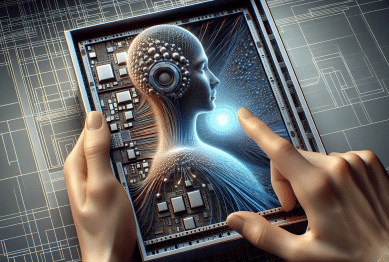The workplace of 2025 is markedly different from that of just a few years ago. Advancements in technology have reshaped how we collaborate, perform tasks, and approach our careers. From the integration of artificial intelligence (AI) to the rise of remote work, these changes are not just trends—they are fundamental shifts in the fabric of our professional lives.

The Integration of Artificial Intelligence in Daily Operations
Artificial intelligence has evolved from a futuristic concept to a practical tool embedded in various aspects of the workplace. Companies are leveraging AI to automate routine tasks, analyze large datasets, and enhance decision-making processes. A report by McKinsey highlights that AI can lower skill barriers, helping more people acquire proficiency in more fields, at any time .
However, the integration of AI also raises concerns about job displacement. A study by the World Economic Forum indicates that while AI and automation may eliminate certain jobs, they also create new roles, particularly in areas like AI maintenance, data analysis, and cybersecurity .
The Rise of Remote and Hybrid Work Models
The COVID-19 pandemic accelerated the adoption of remote work, and this shift has persisted into 2025. Many organizations have embraced hybrid work models, allowing employees to split their time between home and the office. A survey by Robert Half found that in Q1 2025, 40% of jobs allowed some form of remote work, with variations based on location, functional area, and seniority .
This flexibility has led to increased job satisfaction and a broader talent pool, as geographic location becomes less of a barrier for employment. However, it also presents challenges in maintaining company culture and ensuring effective communication among distributed teams.
The Emergence of the Gig Economy
Technology has facilitated the growth of the gig economy, where individuals take on short-term, flexible jobs instead of traditional full-time positions. Platforms like Uber, TaskRabbit, and Upwork have enabled workers to find freelance opportunities that fit their skills and schedules.
While this model offers flexibility and autonomy, it also lacks the stability and benefits associated with traditional employment. Workers in the gig economy often face challenges such as inconsistent income, lack of healthcare benefits, and limited job security.
The Importance of Cybersecurity
As businesses become more reliant on digital tools and remote work, cybersecurity has become a top priority. A report by Splashtop highlights the growing emphasis on secure systems and practices to combat rising threats in remote work environments .
Organizations are investing in advanced security measures, including multi-factor authentication, encryption, and employee training, to protect sensitive data and maintain trust with clients and customers.
The Role of Employee Well-being and Engagement
In 2025, companies recognize that employee well-being is integral to productivity and success. Organizations are implementing programs that focus on mental health, work-life balance, and personal development. According to Gartner, a focus on employee well-being and engagement is one of the key future of work trends for 2025 .
Technological tools, such as wellness apps and virtual counseling services, are being utilized to support employees in managing stress and maintaining a healthy work-life balance.
The Need for Continuous Learning and Adaptability
With the rapid pace of technological advancement, continuous learning has become essential for career growth. Employees are encouraged to acquire new skills, particularly in areas like AI, data analysis, and digital communication. A report by Forbes emphasizes the importance of staying updated with technological trends to remain competitive in the job market .
Organizations are investing in training and development programs to equip their workforce with the necessary skills to navigate the evolving technological landscape.
The Impact of AI on Management Practices
AI is not only transforming operational tasks but also influencing management practices. A survey by the Chartered Management Institute revealed that a significant number of managers are now turning to generative AI chatbots—such as ChatGPT, Gemini, and Claude—for advice before consulting their superiors. Seventy percent of the more than 1,000 managers surveyed reported using AI as their first option, citing speed and the detailed responses as key benefits .
While using AI for support shows initiative, it may also signal deeper trust and cultural issues within organizations. Experts emphasize that good managers should foster a supportive environment, promoting curiosity and offering guidance—roles AI cannot replace.
The Role of AI in Job Creation
While AI is often associated with job displacement, it also plays a significant role in job creation. OpenAI CEO Sam Altman expressed concern over how older workers will adapt to AI’s impact on the workforce, rather than younger people just entering it. He believes that recent college graduates are well-positioned to benefit from the transformation, as they have unprecedented opportunities to innovate, start companies, and create valuable services using AI tools .
This optimistic outlook suggests that AI can be a catalyst for entrepreneurship and innovation, leading to the creation of new industries and job roles.
The Importance of Digital Literacy
As technology becomes increasingly integral to the workplace, digital literacy has become a fundamental skill. Employees are expected to be proficient in using various digital tools and platforms to perform their tasks efficiently. A report by Achievers indicates that 75% of recruiting professionals say skills-based hiring will be a priority over the next 18 months, with many employers placing more value on capabilities than credentials .
This shift emphasizes the need for continuous learning and adaptability in the face of technological advancements.
Conclusion
The workplace of 2025 is characterized by technological integration, flexibility, and a focus on employee well-being. While these changes present opportunities for innovation and growth, they also require individuals and organizations to adapt continuously. Embracing technology, prioritizing cybersecurity, and investing in employee development are crucial steps toward thriving in this new era of work.
References
- McKinsey & Company. Superagency in the Workplace: Empowering People to Unlock AI’s Full Potential at Work. https://www.mckinsey.com/capabilities/mckinsey-digital/our-insights/superagency-in-the-workplace-empowering-people-to-unlock-ais-full-potential-at-work
- World Economic Forum. The Future of Jobs Report 2025. https://www.weforum.org/publications/the-future-of-jobs-report-2025/digest/
- Robert Half. Remote Work Statistics and Trends Q1 2025. https://www.roberthalf.com/us/en/insights/research/remote-work-statistics-and-trends





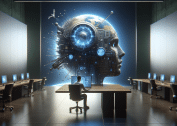
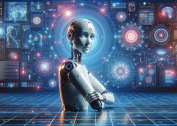

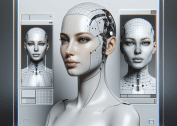

 How to Turn Your Home into a Relaxing Sanctuary
How to Turn Your Home into a Relaxing Sanctuary 